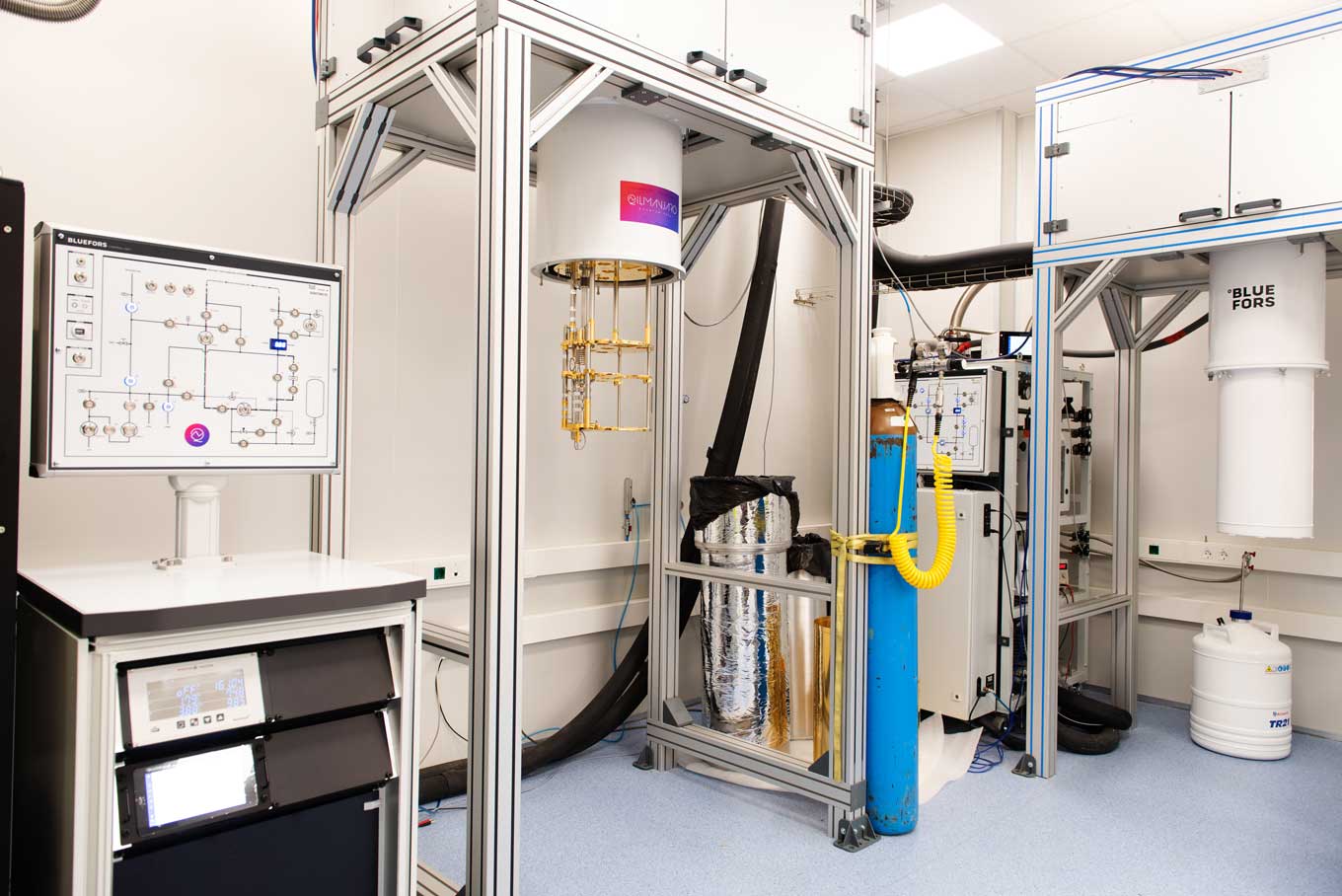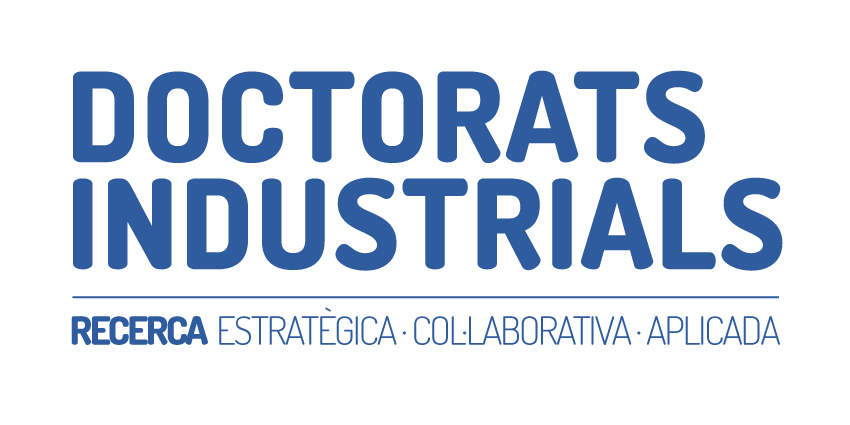De la mecànica quàntica se’n parla molt, de fet està arribant a les nostres vides més de pressa del que pensàvem: la fem servir en els làsers, les ressonàncies magnètiques o en els xips d’ordinadors. El seu potencial transformador és enorme, segons les dades del Boston Consulting Group l’impacte econòmic de les seves aplicacions es quantifica en desenes de milions d’euros en els cinc anys vinents. En un escenari proper, la computació quàntica revolucionarà geopolíticament i econòmicament la societat, i impactarà de manera potencial en diferents àrees de les nostres vides: la salut, les finances, la criptografia o la seguretat, entre moltes altres. Almenys a l’empresa Qilimanjaro Quantum Tech ho tenen molt clar i treballen per aconseguir-ho desenvolupant tant software com hardware en l’àmbit de la computació quàntica.
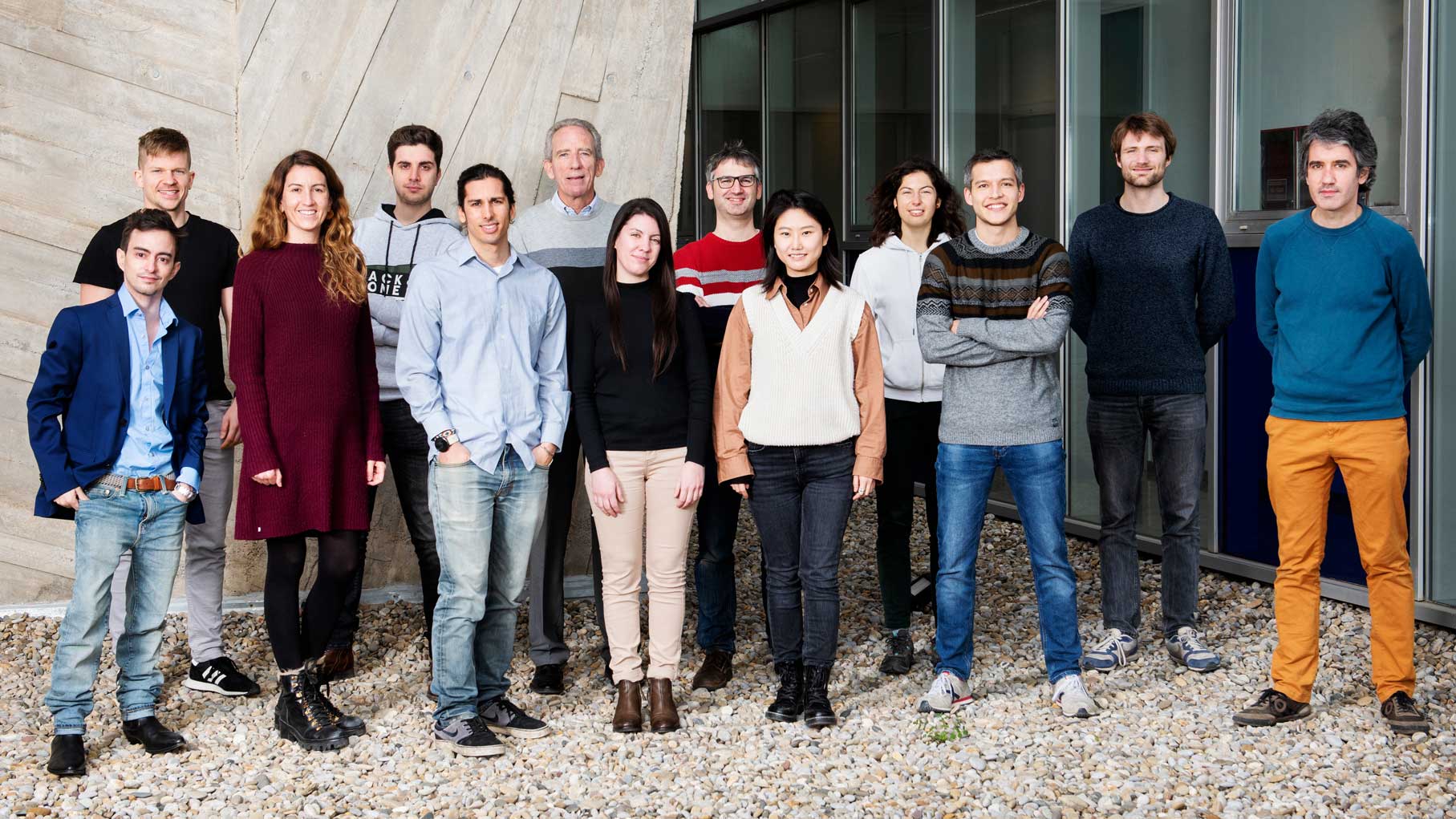
Qilimanjaro Quantum Tech, membres del QuantumCAThub i del Quantum Industry Consortium, és una empresa derivada de tres centres de recerca d’alt nivell, el Barcelona Supercomputing Center (BSC), l’Institut de Física d’Altes Energies (IFAE) i la Universitat de Barcelona (UB). “Vam decidir iniciar la idea del projecte el 2017 quan Jose Ignacio Latorre, Artur Garcia i Pol Forn-Díaz vam tenir clar que volíem impulsar una línia seriosa de computació quàntica” ens explica Pol Forn-Díaz, Chief Hardware Architect. La missió principal d’aquest projecte és construir un ordinador quàntic i fer-ho des de l’àmbit purament acadèmic era molt complicat a causa del finançament del projecte. D’aquesta situació neix la necessitat de crear l’empresa més d’un any després de projectar la idea. Avui dia el projecte rep el suport d’assessors líders mundials del sector quàntic, i l’empresa que el desenvolupa presenta tots els ingredients de l’èxit: un equip d’investigadors de primer nivell i una tecnologia d’un alt potencial dins d’un ecosistema privilegiat. L’objectiu d’aquesta spin-off és oferir un servei complet democratitzant aquesta revolucionària tecnologia, ja que la nova computadora, una màquina quàntica variacional, serà accessible des d’un servei al núvol. Això permetrà a empreses i a usuaris explorar la possibilitat d’aplicar algorismes quàntics a problemes de la vida real.
“Qilimanjaro presenta tots els ingredients de l’èxit: un equip d’investigadors de primer nivell i una tecnologia d’un alt potencial dins d’un ecosistema privilegiat”
La recerca col·laborativa ha sigut un dels elements claus pel desenvolupament d’un projecte que ha volgut anar més enllà d’un camp tan aparentment teòric com la mecànica quàntica. L’equip de Qilimanjaro ha sabut veure el potencial de les seves aplicacions en la computació quàntica i aplicar-ho en un temps relativament curt. Aquest alt rendiment del projecte també és conseqüència de treballar amb els tres centres de recerca d’alt nivell esmentats. És per això que l’equip de socis està format per un investigador de cada un d’aquests centres més dues persones més amb perfil empresarial que aporten la seva visió de negoci. Aquesta fusió de coneixement i experiència ha permès a Qilimanjaro un intercanvi continu de recursos, així com l’accés a infraestructures d’alt nivell. Els investigadors de l’equip es beneficien del know-how empresarial per poder enfocar els outputs de la seva recerca cap a un àmbit més comercial.
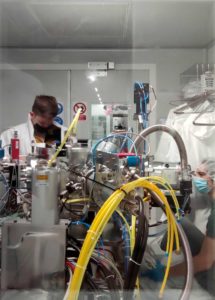
Qilimanjaro Quantum Tech té en marxa quatre projectes de Doctorats Industrials, i dos projectes més estan en procés de resolució per començar durant l’any 2021. En el moment de gestació de la idea inicial de l’empresa, el món s’orientava clarament cap a les tecnologies quàntiques, creant-se a Europa el FET Flagship per les tecnologies quàntiques, un context d’explosió d’empreses emergents quàntiques a EUA i, en menor quantitat, també a Europa. “Aquests esdeveniments ens van motivar a pensar que era el moment de provar d’arrencar un projecte arriscat, però amb alt interès en tots els àmbits (econòmic, societat, empresarial, etc.) i que podria veure la llum aviat” comenta Victor Canivell, el CBO de Qilimanjaro. El desenvolupament d’aquests projectes es porta a terme en un entorn dual, empresarial i acadèmic, fet que genera dues línies de pensament complementàries, i que l’empresa sap aprofitar.
Segons ens explica Artur Garcia Saez, Chief Software Architect de l’empresa, “la principal diferència a la part empresarial de Qilimanjaro és en la manera com s’organitzen els projectes internament per equips, en compartiments, amb entregables per als clients, que no és la manera de funcionar dels grups de recerca acadèmics”. Els convenis establerts entre Qilimanjaro i les tres institucions de recerca participants permet gestionar els aspectes més competitius d’una empresa emergent amb l’interès de publicacions del món acadèmic. El projecte sobre computació quàntica d’aquesta empresa nascuda el 2019 és un veritable cas de deep tech, amb períodes de maduració llargs precisament per l’ús de tecnologies avançades que evolucionen des del món acadèmic fins al món empresarial com ha resultat d’una estreta col·laboració.
“La fusió de coneixement i experiència ha permès a Qilimanjaro un intercanvi continu de recursos, així com l’accés a infraestructures d’alt nivell.”
L’impacte dels projectes de Qilimanjaro es preveu que sigui molt alt en l’optimització d’àmbits com la logística, la farmacèutica o les finances, entre d’altres. El tipus de computació quàntica que desenvolupen s’anomena adiabàtica i, a diferència de la computació quàntica de portes que està trobant molts problemes en el seu desenvolupament, la computació quàntica adiabàtica es centra en problemes concrets amb una aplicació molt més immediata. El fet és que Qilimanjaro ja ha signat dos importants contractes amb clients internacionals per valor de més de 3 milions d’euros i ha vist acceptada la seva col·laboració en el projecte europeu H2020 “AVaQus” de computació quàntica, recentment atorgat per la Comissió Europea sota la direcció del Dr. Pol Forn-Díaz i l’IFAE. En una primera fase, Qilimanjaro ven serveis de desenvolupament d’algorismes quàntics per operar en simuladors d’ordinadors clàssics o en prototips quàntics ja a l’abast via el cloud. “Això ens ajuda a conèixer casos d’ús reals de clients interessats en les aportacions de la computació quàntica” comenta Artur Garcia Sáez. També estan involucrats en projectes de consultoria de transferència tecnològica per entitats interessades a desenvolupar els seus equips d’innovació, fet que ajuda a desenvolupar les tecnologies de la nova plataforma quàntica, un dels objectius estratègics de la companyia. D’entre els seus objectius comercials destaquen l’ajuda que ofereixen a qualsevol organització per esdevenir “quantum ready”, especialment aquelles empreses que necessitin un gran poder de càlcul.
Aquesta doble visió, acadèmica i empresarial, influeix molt en la formació dels doctorands industrials qui són, de fet, un pont de col·laboració entre aquests dos entorns. Des de Qilimanjaro reconeixen que el fet d’estar associats a entitats de recerca importants com l’IFAE o el BSC beneficia molt els doctorands industrials, ja que estan exposats a l’entorn acadèmic i els motiva a millorar les seves condicions de treball i la projecció dels seus projectes. En el cas de Qilimanjaro la majoria dels doctorands provenen del món acadèmic i tenen un gran interès a descobrir la dinàmica i les oportunitats complementàries que hi ha en el món de les empreses emergents en el sector de la quàntica.
El Doctorat Industrial és una bona manera de retenir talent altament qualificat dins el teixit productiu, especialment en empreses com Qilimanjaro qui necessiten un talent molt específic. La captació d’aquest talent és un dels seus objectius fonamentals, i així ho certifica Pol Forn-Díaz quan ens explica el cas d’un dels seus doctorands industrials qui “prové directament de la indústria i clarament té una vocació d’innovar amb noves tecnologies, que és precisament el que una empresa com Qilimanjaro necessita”. L’equip de Qilimanjaro està format per estudiants i investigadors internacionals del Japó, la Xina, Holanda, Irlanda i Alemanya, entre altres, que han desenvolupat part de la seva carrera professional a l’estranger. Aquesta característica fa que la xarxa de contactes dins l’àmbit de la computació quàntica sigui realment ampli aportant al projecte el suport d’assessors líders mundials del sector quàntic.
“Jo recomanaria molt el Doctorat Industrial a qualsevol que estigui interessat en un doctorat; m’ha proporcionat un marc més centrat a la recerca original en comparació amb un doctorat tradicional, ja que els seus objectius estan alineats amb els de l’empresa”
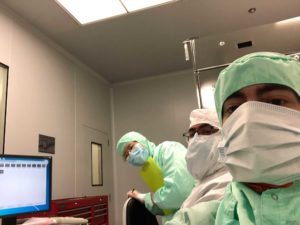
Els doctorands involucrats en aquests projectes destaquen aspectes característics del Pla de Doctorats Industrials, com és el cas del testimoni de Jordi Riu en afirmar que “els projectes de Doctorats Industrials potencien el desenvolupament de recerca aplicada en entorns de producció reals, facilitant l’accés a formació específica i transversal i els recursos d’ambdós àmbits, tant empresarial com acadèmic”. D’altres doctorands destaquen l’oportunitat de treballar en un sector d’alta innovació com és la computació quàntica, com és el cas de Yifei Chen, vinguda expressament des de la Xina fins a Barcelona per participar en un dels projectes de Doctorats Industrials de Qilimanjaro. La Yifei ens explica que realment se sent molt afortunada de participar en aquest projecte de Doctorat Industrial, i que feia temps que buscava una plaça de doctorat en aquesta l’àrea de computació quàntica. “La inversió en el projecte demostra que la Generalitat de Catalunya està molt preocupada per la ciència i la tecnologia” indica la mateixa Yifei. És la primera vegada que Yifei combina l’experiència com a estudiant mentre treballa en una empresa al mateix temps. Ens explica que és un repte equilibrar-los i com ha d’invertir molta energia: “puc tenir els recursos tant de la universitat com de l’empresa”. El dia a dia dels doctorands és una feina combinada entre la universitat i l’empresa. “En l’etapa principal, per als acadèmics i les empreses, el que necessito fer no és molt diferent. Tinc la reunió almenys una vegada a la setmana amb el grup en la universitat i l’empresa respectivament. El que és una mica diferent del treball acadèmic és que necessito comunicar-me amb els clients de la nostra empresa. Puc aprendre molt en l’àrea que m’interessa” ens explica la Yifei sobre l’experiència de desenvolupar la seva recerca aplicada en un àmbit dual.
Un altre dels doctorands industrials és el David Quinn, arribat a Barcelona des d’Irlanda aportant el seu talent al projecte. La seva experiència treballant en el disseny de qubits, i treballant al costat de reconeguts investigadors en la computació quàntica, ha aportat unes habilitats extremadament útils pel desenvolupament dels objectius de Qilimanjaro. En David ens destaca el valor de participar en un Doctorat Industrial: “jo recomanaria molt el Doctorat Industrial a qualsevol que estigui interessat en un doctorat; m’ha proporcionat un marc més centrat a la recerca original en comparació amb un doctorat tradicional, ja que els seus objectius estan alineats amb els de l’empresa”.
L’alta qualitat de la recerca que desenvolupen a Qilimanjaro ha atorgat molt prestigi a aquesta companyia catalana, que disposa de l’experiència de la important trajectòria del seu equip fundador, liderat pel professor José Ignacio Latorre, de la Facultat de Física de la Universitat de Barcelona (UB) i director del Center for Quantum Technologies a Singapur, el Dr. Pol Forn-Díaz, de l’Institut de Física d’Altes Energies (IFAE), i el Dr. Artur Garcia Sáez, del Barcelona Supercomputing Center (BSC). Un equip de fundadors científics complementat per dos fundadors de l’àmbit empresarial, Víctor Canivell i Jordi Blasco, qui aporten experiència executiva en el sector informàtic i de fusió i adquisició d’empreses (M&A), respectivament. El mateix José Ignacio Latorre, un dels investigadors espanyols més reconeguts en el camp de la física quàntica, reconeixia en una entrevista a El Periòdico com la computació quàntica serà la tecnologia que produirà una major disrupció a la nostra societat. Després de la primera fita important realitzada pel prototip de processador quàntic de Google el 2019 format per 54 qubits, o bits quàntics, on es va superar els millors superordinadors digitals de la Terra en un problema purament acadèmic, Qilimanjaro calcula que hi haurà un període d’uns pocs anys on s’espera que no hi hagi cap impacte amb aplicacions reals. Així ho afirma Pol Forn-Díaz quan ens comenta que ja en uns cinc anys “haurien de començar a aparèixer processadors quàntics d’una certa mida que tindran el primer impacte resolent problemes amb aplicacions reals en molts sectors, de les finances a la logística, i la recerca dels nous materials i noves molècules per al sector farmacèutic”. La principal ambició de l’equip de Qilimanjaro és desenvolupar un processador entre aquells que tindran les primeres aplicacions reals a l’abast, i en aquesta línia estem segurs que els projectes de Doctorats Industrials els ajudaran a assolir aquest repte.
